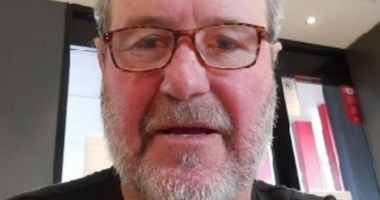Share this @internewscast.com
Left: Ryan Routh (Law&Crime). Center: U.S. District Judge Aileen Cannon (U.S. District Court for the Southern District of Florida). Right: President-elect Donald Trump arrives to speak at a meeting of the House GOP conference, Wednesday, Nov. 13, 2024, in Washington. (AP Photo/Alex Brandon).
Ryan Routh, accused of attempting to assassinate Donald Trump last year at one of his golf venues, has been denied access to “classified information” linked to his legal case. A federal judge determined that revealing this information is unacceptable for “national security” concerns, as announced on Friday.
In a brief ruling, U.S. District Judge Aileen Cannon explained that sharing such information could lead to “serious harm or exceptionally grave consequences.” The protective order from the government was approved to prevent the release of the sensitive details involved.
This issue was brought forward in a confidential motion earlier this year, discussed in a closed-door session on March 7 concerning materials governed by the Classified Information Procedures Act (CIPA). The Justice Department was requested to detail the “nature, scope, and volume” of the classified information, alongside other pertinent data, following a February 12 submission indicating its potential relevance to the case.
The DOJ emphasized that “CIPA’s primary aim is to balance a defendant’s right to access and use crucial evidence at trial with the government’s need to safeguard classified materials in the interest of national security,” referencing earlier legal precedents.
The Supreme Court has acknowledged the necessity of maintaining the confidentiality of national secrets, noting that “The Government has a compelling interest in safeguarding both the secrecy of vital national security information and the perception of confidentiality vital to the effective functioning of our foreign intelligence service,” as elaborated in the submission.
Prosecutors noted how the government “produces discoverable information” to the defense in cases involving classified information. But the discovery of classified information must actually be helpful to the defense of the accused, according to the filing. Cannon ruled Friday that the DOJ made a “sufficient showing” that the information at issue was classified.
“The court finds that the United States properly invoked the provisions of CIPA and its classified information privilege as to the information referenced,” Cannon said. “The United States’ motion and all accompanying material are hereby sealed, and shall remain preserved in the custody of the Classified Information Security Officer, in accordance with established court security procedures, to be made available to the appellate court in the event of an appeal.”
Routh, 59, is scheduled to go before a jury in September after pleading not guilty to charges of attempting to assassinate a major presidential candidate, assaulting a federal officer and multiple firearm violations. He asked Cannon, a Trump appointee, last month if he could dump his public defenders and represent himself, to which she obliged — sparking fears that his trial will “become a circus,” according to federal prosecutors.
Routh tried to flex his legal muscles on July 23 in a pro se response to a DOJ motion filed weeks earlier, which asked Cannon to exclude “irrelevant and prejudicial evidence” that prosecutors expect to be filed by the defense and to admit certain trial evidence, including messages authored by Routh’s former employee Tina Cooper, who pleaded guilty in North Carolina for conspiring with Routh to help get his hands on weapons illegally.
The Justice Department torched Routh in its reply to his filing, saying he was “mistaken” on numerous things that he alleged in the response, including an “odd claim” that the government has not identified specific pieces of evidence at issue.
“As outlined below, to the best of our ability lacking a defense exhibit list, we have done so,” the DOJ said. “And our arguments are more persuasive in light of the defendant’s decision to represent himself. This court has a responsibility to ensure that trial does not become a circus, and that the jury is not burdened and distracted by plainly inadmissible evidence.”
In addition to trying to kill Trump, Routh is also accused of possessing a firearm while a convicted felon and for possessing a gun with an “obliterated serial number,” offenses punishable by up to 15 years and 5 years respectively upon conviction. The Department of Justice says that two people helped illegally obtain a weapon “on his behalf,” specifically the SKS rifle that he allegedly brought to Trump International Golf Club, according to prosecutors.
In his response to the DOJ’s motion, Routh rambled about the “new DOJ, Trump, Bondi” and how one can’t “besmirch the Presidents morals when he has none,” according to the filing. “The defendant respectfully moves this court to recognize that the prosecution is making every attempt in this motion to silence the defense in every fashion,” Routh alleged.
Prosecutors have said they expect the Florida man to present statements from self-published “books” and other writings of his, as well as hearsay statements.
“It is the defendant’s evidence that is most likely to upend this trial by injecting irrelevant and prejudicial facts unrelated to the actual charges,” the DOJ blasted in its reply.
“None of the substantive legal arguments raised … has merit,” prosecutors said.















